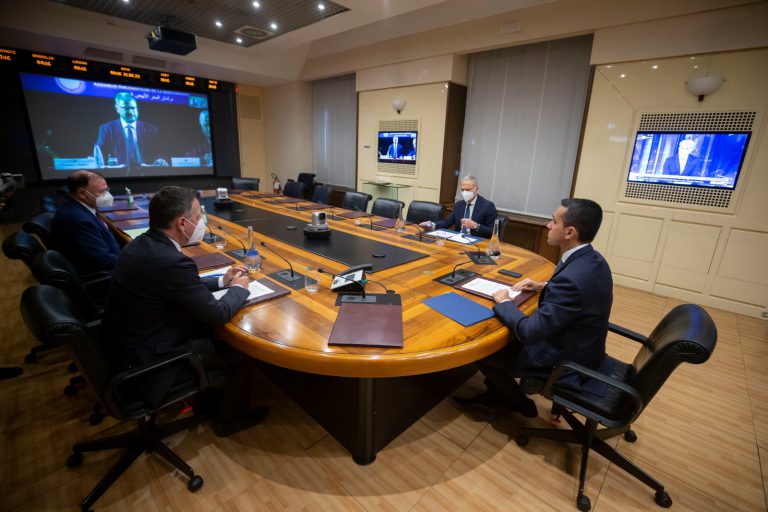As Foreign Minister, would you say that we now have the first Italian victims of ISIS? Are Tunisia’s Ansar al Sharia jihadists aligned with the Caliphate?
«We have the innocent victims of criminal terrorists. And then, it’s very difficult to make a clear distinction between Daesh [ISIS, editor’s note] and more traditional jihad-based terrorism. Certainly, we are seeing crises and terrorist threats arching across many of the countries of the Mediterranean and Gulf. And, of course, there is the historic presence of Ansar al Sharia in Tunisia. It’s being outlawed led many terrorists to leave the country and join the ranks of foreign fighters in various other countries, and this has resulted in intersections with Daesh».
But who exactly has claimed responsibility for the attack?
«The state of confusion that I just described explains why there have been a series of claims, in which both the old and new terrorism seem to be mingled».
Was the target Tunisia or also tourists, and therefore Italians?
«In the first place, Tunisia, a country that symbolises what Islamic fundamentalist terrorism most fears: democracy, and a pluralist democracy. Indeed, Tunisia is an example of a country that, after the Arab Spring revolts, saw its government alternate between secular and Islamic, and whose current secular government includes a Minister for Labour from the moderate Islamic party. This kind of democratic collaboration is what Islamic terrorism seeks to destroy by attacking both the Parliament and a source of economic income, tourism».
Tunisia shares a border with Libya. Doesn’t Italy’s idea of pursuing an accord between the parties in Libya conflict with Egypt’s, and possibly France’s, that the Tobruk component should prevail militarily over the factions in Tripoli and Misurata?
«Negotiations and the accord that UN envoy Bernardino Leon is trying to accomplish have been supported by France as part of the EU and by Egypt in bilateral relations. Naturally, the work of the United Nations must aim to put together the greatest number of Libyan components possible».
Is this a feasible outcome? Is it realistic?
«It surely is between the Tobruk parliament, which we recognise, and Misurata. And I think the door should also be opened to Tripoli. It is clear that if there is at least a 60% basis for agreement among the Libyan components, the international community can capitalise on that, otherwise it will be limited to containing the terrorism. The pacification of Libya from without, in the absence of accord among the Libyans, is unthinkable».
President Mattarella has said that there is not much time, that terrorism must be confronted with urgency. The Renzi government, you and Minister Pinotti, and EU High Representative for Foreign Affairs Federica Mogherini, all insist that time is running out. When that happens, what will have to be done?
«Saying that time is running out doesn’t mean wondering what to do afterward, but now. All the parties in Libya and all the countries of the region must be told clearly and unequivocally that every week that passes without a basic accord is a week that runs the risk of strengthening the spread of terrorism».
Time counts, so…
«Yes, but not in the sense that we need to go on to the next chapter but rather in the sense that we need to ratchet up the pressure in the current phase».
The attacks in Tunis, after those of Paris, Belgium and Denmark, show that the jihadists are unrelenting. What else are we to expect?
«The alarm did not go off with the attack on the Bardo Museum in Tunis, it had already sounded in Paris, and afterward. We are all aware that the emergency stretches across the terrorist threats in Europe and in North Africa. Traditional jihadist forces have fused with this new phenomenon of Daesh and with its ability to mobilise what are perhaps isolated forces, loose cannons, lone wolves, inside European countries».
Should we be afraid?
«Awareness of the threat must be very high, but must not produce alarmist messages or hysterical behaviour. The way to respond, in Italy as in France, Belgium or Denmark, is to strengthen security, vigilance and intelligence activities. We must not change our way of life as the terrorists wish us to. We must not give up our freedoms: to circulate and to express ourselves. We will not retreat in the face of the terrorist threat».
There will be fewer Italians going light-heartedly to Tunisia…
«And so the international community is going to have to make a special effort to help Tunisia, which is a symbol of what is a frontier for us. In the coming days we will decide whether to promote a conference of donors in support of that economy. Today my first thoughts are of condolence for the Italian victims. This has been a severe blow, but Italy remains a safe country. We mustn’t behave as though Daesh were suddenly on the road into Rome».
In terms of the Middle East, is Netanyah’s victory good news or not?
«A foreign minister does not consider news of the electoral results of a friendly nation either good or bad. The good news is that Israel is a great democracy and its electoral results are to be respected. That said, the Italian government considers the only credible solution to the Israeli-Palestinian crisis lies in Israel’s security and the birth of a Palestinian State. This is not Netanyahu’s opinion today. We respect the vote but do not renounce our position».
When will the Italian marines be sent back to Italy to stay?
«There is contact between the Italian and Indian governments on the search for a satisfactory solution but such lengthy timeframes are unacceptable. I raised the issue with UN Secretary-General Ban Ki-moon, thanking him for having already spoken of it with Premier Modi and asking him to make an ulterior effort to overcome this crisis between two important United Nations member countries».


